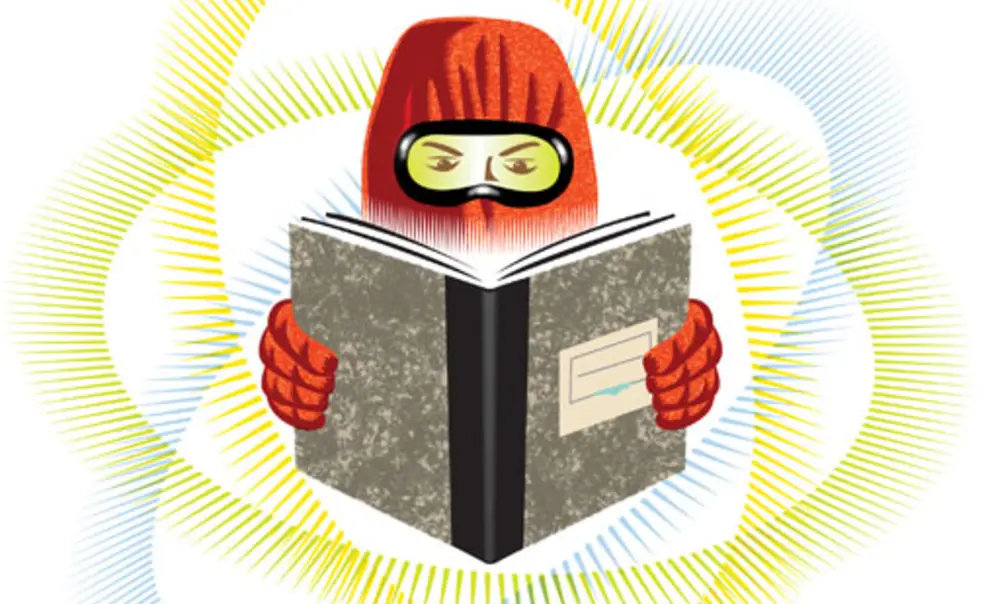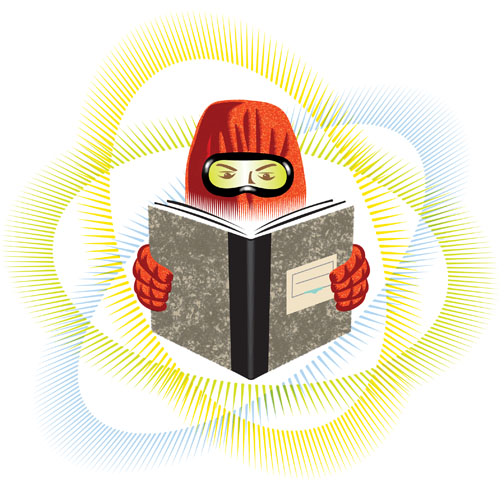Manhattan Project notebooks hold a secret - radioactivity
Daniel Linke, the University archivist, thought the papers would be a great addition to the Mudd Library’s collection, and University lawyers confirmed that the documents had been declassified in the 1950s. But Sue Dupré, the health physicist in Princeton’s environmental health and safety office, spotted a potential hazard: Some of the notebooks had been contaminated with uranium.
Standards for containing radioactive materials were not as stringent in the 1940s, Dupré explained, so it was possible for lab notebooks to collect tiny drips or splashes of uranium solution. Dupré tested the notebooks and confirmed that many were radioactive. If historians or researchers were to handle the notebooks — particularly the inside pages — they would need to take precautions, such as wearing rubber gloves.
Linke said he was open to the idea of keeping the contaminated notebooks if they were of historical import. He called on Woodrow Wilson School Ph.D. student R. Scott Kemp, a research affiliate for the International Panel on Fissile Materials, to review the files. Kemp said that while the papers in the filing cabinet were historically interesting, the notebooks, which noted measurements from specific experiments, were not particularly useful.
“That made the decision easy,” Linke said. The contaminated notebooks were discarded, using the University’s protocol for removing radioactive waste. The other documents, which are not radioactive, have been added to Mudd’s collection, along with a few non-radioactive notebooks.
Princeton departments often turn up interesting archival materials, Linke said, thanks to a campus filled with “nooks and crannies where things can sit for years,” and for the archivist, each find brings new experiences — in this case, seeing a Geiger counter in action. Said Linke, “That’s why I love my job.”













1 Response
Sandor Barcza ’60
10 Years AgoWhy not save data?
It is criminal to destroy information, no matter how insignificant (“Manhattan Project notebooks hold a secret — radioactivity,” Notebook, Oct. 7). There may be many researchers who may disagree with the Woodrow Wilson School student who made the decision.
The books should have been scanned, photocopied, or microfilmed before discarding. This would have preserved the information, but not the radioactivity.